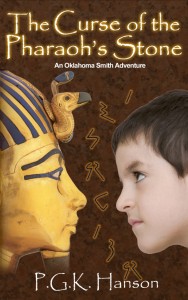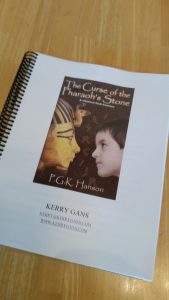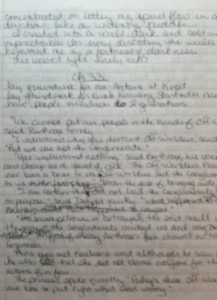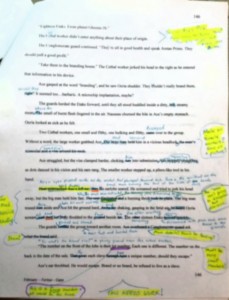 I met with most of my beta readers this week for my middle grade manuscript The Curse of the Pharaoh’s Stone. My daughter’s wonderful school librarian put together an amazing local team of readers—4 kids, 2 teachers, a librarian, and a mom of middle grade kids. I also have 2 other incredible teachers and authors reading it. I am so excited to get their feedback!
I met with most of my beta readers this week for my middle grade manuscript The Curse of the Pharaoh’s Stone. My daughter’s wonderful school librarian put together an amazing local team of readers—4 kids, 2 teachers, a librarian, and a mom of middle grade kids. I also have 2 other incredible teachers and authors reading it. I am so excited to get their feedback!
Yes, I said excited. I know many writers get butterflies when they send their manuscript babies out to beta readers. Some writers are downright terrified. And I agree, when you let your work out into the world, even in beta, it can be scary. You’re opening yourself up to criticism, to the possibility that people won’t love your story as much as you do. Sometimes writers even see criticism at this stage as a failure on their part.
But I am strange—I love honest feedback. I think it comes from how my writing process evolved in a collaborative model with my best friend Donna Hanson Woolman. Then when I got my Master of Arts in English, my advisor was a blunt yet positive critiquer. Of course, if the criticism is personal or nasty in nature, I don’t like that any more than the next writer, but in this post I am talking about thoughtful and honest feedback.
I enjoy the red pen on my manuscript because of my mindset. I am confident that Pharaoh’s Stone is a good book. Its plot is solid, its characters rounded, and the prose is clean. I have read enough middle grade—both published and from an agent’s slush pile—to know my book is good. I am excited to get my beta readers’ feedback because I know that their feedback will get the book from good to great.
 That’s how we writers have to approach any constructive feedback—as a way to make our manuscripts better. A challenge to dig deeper and raise our craft higher. After working so long and hard on our stories (I’ve been with Pharaoh’s Stone for 11 years), we can lose the objectivity we need to make the final adjustments that will make our work shine.
That’s how we writers have to approach any constructive feedback—as a way to make our manuscripts better. A challenge to dig deeper and raise our craft higher. After working so long and hard on our stories (I’ve been with Pharaoh’s Stone for 11 years), we can lose the objectivity we need to make the final adjustments that will make our work shine.
That’s why beta readers are such an important part of our writing process. They bring fresh eyes, fresh brains, and a fresh perspective. I am so lucky to have an enthusiastic team reading my book, and I am so grateful to all of them for making the time and effort to help me.
Do you use beta readers? Where does their feedback fit into your process?

